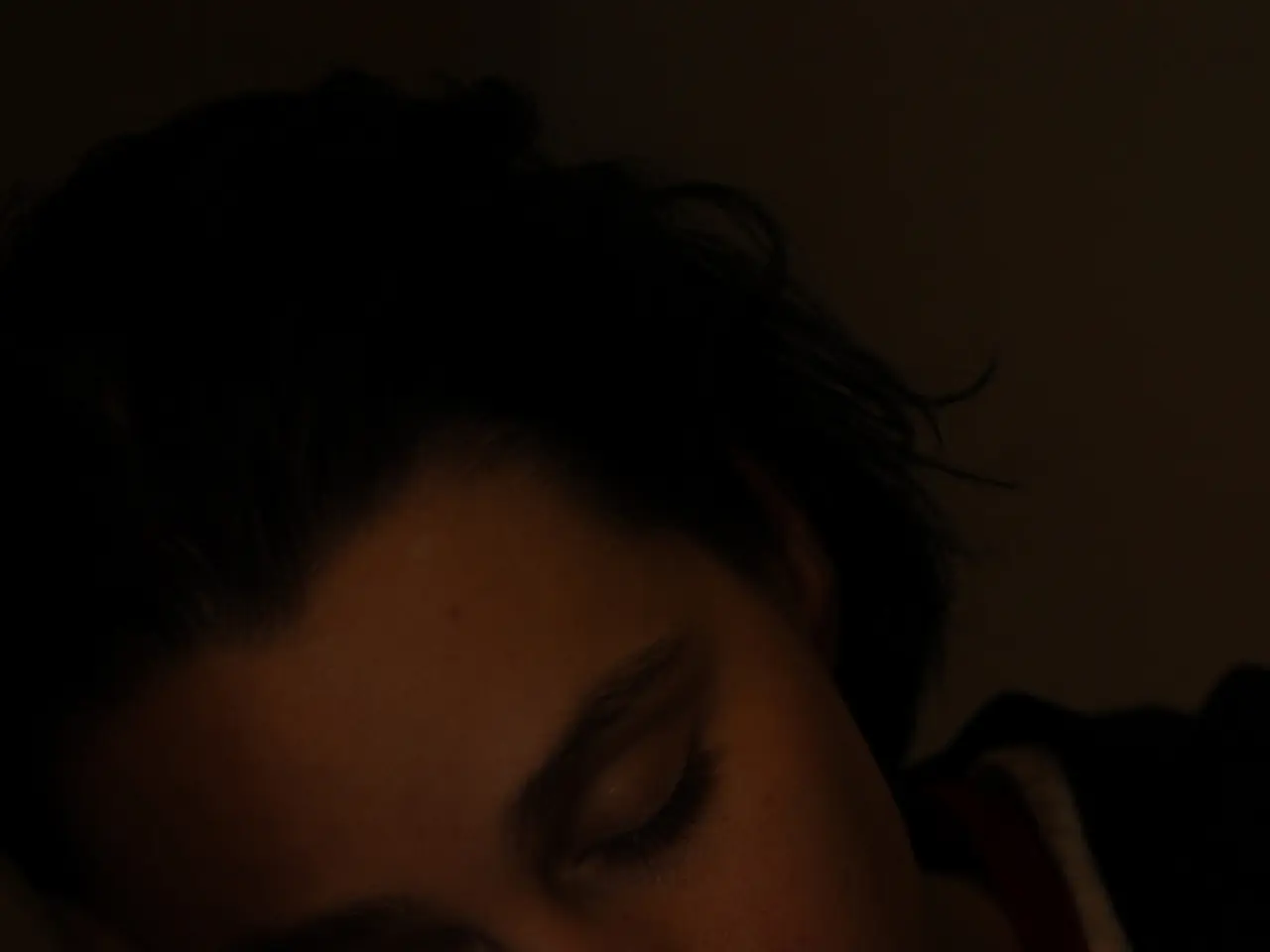Troubles with Sleeping and Effective Countermeasures
In the realm of sleep research, a myriad of factors are meticulously controlled to isolate the effects of sleep patterns. These include age, health status, lifestyle factors, environment, medication use, consistency in bedtimes, and wake-up times [1].
A fascinating finding in this field is the revitalising effect of a 20-30-minute power nap at various times of day. This short rest can boost energy levels, enhance mood, and replenish the mind [2]. However, delving deeper into sleep-related issues, we find a more complex relationship between maladaptive coping mechanisms, sleep difficulties, and depression.
Maladaptive coping, such as rumination, catastrophizing, and worry, can exacerbate sleep problems by increasing cognitive-emotional arousal. This aligns with Harvey’s cognitive model of insomnia, which posits that sleep-related worry and intrusive negative thoughts create a self-perpetuating "insomnia-anxiety-insomnia" cycle [3].
Sleep difficulties like insomnia are strongly predictive of future depression. Persistent insomnia increases the risk of developing depressive symptoms significantly [4]. Conversely, depression can worsen insomnia, establishing a bidirectional relationship where each condition exacerbates the other [4].
Dysfunctional emotion regulation mechanisms, often seen in maladaptive coping, may mediate the relationship between insomnia and depression. Patients with insomnia usually display heightened negative emotions and exaggerated emotional responses, which can be mitigated as insomnia symptoms improve, suggesting better emotional regulation leads to a reduction in depression severity [2].
However, not all coping mechanisms equally influence sleep outcomes. For instance, in chronic pain patients, maladaptive or ineffective coping strategies do not mediate well for sleep quality improvements, except for praying in some cases [1].
In the pursuit of mental wellness, both rest and recovery are vital. Regular mindfulness techniques have been shown to lessen sadness and distress, increase focus and cognitive performance, and boost well-being [5].
While a 'depression nap' may seem appealing as a preventative measure or treatment for depression, it could interfere with regular sleep cycles and exacerbate depressed symptoms [6]. It's crucial to remember that these treatments are meant to supplement, not replace, standard therapy procedures.
For individuals struggling with sleep-related issues, a good sleep pattern, regular rest and recovery intervals, and enough sleep are essential components of comprehensive mental health care [7]. Caffeine, heavy meals, and early-morning alcohol can disrupt sleep, as can excessive talking, late nights, or electronic device use before bed [8].
Tools like the Pittsburgh Sleep Quality Index (PSQI) and a sleep diary can help monitor sleep quality and identify patterns or behaviours contributing to poor sleep [9]. Consistent bedtimes, depression, afternoon naps, and wake-up times can help regulate the body's internal clock and improve sleep quality [10].
While occasional napping is fine, excessive sleep disorders may suggest underlying health issues, and a doctor should assess individuals [11]. Sleeping as a coping mechanism can provide temporary relief, but relying on it excessively may indicate underlying problems [12].
Long-term sleep can cause headaches, back pain, and cognitive impairment [13]. Individuals who suffer from insomnia and sleep issues may have difficulty waking up in the morning, experience afternoon grogginess, weariness, and a loss of enthusiasm and vigor [14].
Sleep management, moderate exercise, a healthy diet, and mindfulness practices like meditation or deep breathing can help control depressive symptoms [15]. To manage sleep addiction, establish a regular sleep routine, avoid stimulating activities before bed, and seek expert assistance if necessary [16].
Chronic insomnia or oversleeping may suggest sleep apnea or depression [17]. Sleep difficulties, including insomnia and sleep apnea, are linked to mental health issues like depression and bipolar disorder [18].
Addressing both insomnia and depression simultaneously, alongside targeting maladaptive coping and emotion regulation, often forms the cornerstone of effective treatment [2][3][4].
- Incorporating mindfulness techniques daily, such as meditation, can reduce sadness and distress, enhance well-being, and improve overall mental health [5].
- The relationship between insomnia and depression can be complex, with maladaptive coping mechanisms like rumination, catastrophizing, and worry potentially exacerbating sleep problems and contributing to an increased risk of developing depressive symptoms [3].
- Effective sleep management practices, including maintaining a regular sleep schedule, mindfulness meditation, and moderating caffeine consumption, can help improve sleep quality and reduce the symptoms associated with depression and other mental-health issues [15, 16].




